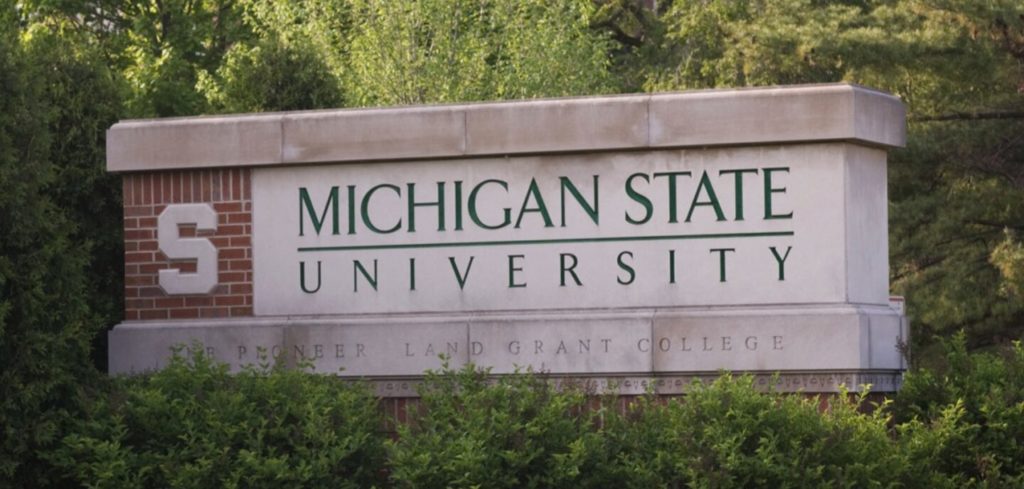Michigan State bans words like ‘America,’ ‘Christmas tree’ and ‘bunny,’ as conservatives accused of banning books
A new ultra-woke style guide from Michigan State University (MSU) requires the school to avoid certain words to lessen “microaggressions.”
As the official style guide for the university, it…

A new ultra-woke style guide from Michigan State University (MSU) requires the school to avoid certain words to lessen “microaggressions.”
As the official style guide for the university, it controls the way academic papers are written by students. Such lists come amid the push by establishment progressives, including in academia, to paint conservatives as book-banners for removing age-inappropriate materials from schools.
The guide claims some of the newly banned words, like “frontier” and “pioneer,” are problematic because they remind people of America’s “colonial” past, said Fox News.
In often opaque Marxist code, the MSU style guide explains the reasoning behind some of its more obtuse style requirements.
“‘Minoritized’ or ‘marginalized’ can remove agency and reaffirm deficit language, avoid using unless in a quotation,” said the guide, in one example.
“Avoid referring to someone from an underrepresented group as ‘articulate,’ as this can reinforce negative tropes,” said another example.
Progressives have long used so-called style guides, which are supposed to create grammatical consistency across a publication, as political documents to redefine the meaning of words and ultimately ban them to help liberal causes.
“More often than not, style writers have been more interested in censoring conservative words while promoting language that liberals tend to favor,” said Rachel Alexander in 2017 in The Hill. “That’s been especially true of the AP Stylebook published by The Associated Press.”
MSU’s guide continues: “Terms like ‘at-risk’ or ‘underprepared’ blame the person rather than the structures and barriers that have neglected communities. Move away from deficit language by using ‘underrepresented,’ ‘underserved’ or ‘historically disadvantaged.’”
“Structures and barriers” are the modern Marxist academic way of talking about the “class struggle,” which in modern parlance has been replaced by the “identity” struggle.
Indeed, the reference materials used to compile the guide is a compendium of identity-driven aggrieved journalism:
- The Asian American Journalist’s Association: Guidances and Resources
- Conscious Style Guide: Ethnicity, Race + Nationality
- Native American Journalists Association: Reporting Guides
- National Association of Black Journalists: Style Guide
- National Association of Hispanic Journalists: Cultural Competence Handbook
- Radical Copy Editor: Thirty Everyday Phrases That Perpetuate the Oppression of Indigenous Peoples (2020)
- Race Forward: Race Reporting Guide
Most disappointing is the guide’s avowed anti-Americanism.
“Avoid American-centric terms that could be detrimental to an underrepresented group,” said the guide.
Some examples include: “foreigner,” “alien,” “illegal immigrant,” “illegals,” “America” “backward,” “third world,” “expatriates,” and “expats.”
When talking about Islamic terrorism, the guide requires people to avoid the use of the words “extremist,” “militant,” “terrorist,” “radical,” “fundamentalist,” “cult,” “sect,” “devout” and “pious.”
It also cautions against the use of “majority religious imagery,” which Marxists would consider oppressive to minority religions, banning words commonly associated with Christian holidays like “merry” or “Christmas trees,” “wreaths,” “holly,” “bells,” “gifts,” “reindeer,” “bunnies,” “eggs” and “chicks.”
Instead of talking about Christmas and Easter, the guide recommends saying, “wishing you a wonderful winter/spring break.”
These linguistically restrictive style guides have spread beyond higher education, as news outlets are creating similar lists, Campus Reform reports.



